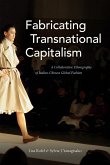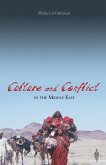Illustrated with photographs, drawings, and cartoons gathered from popular culture, this provocative book demonstrates that the veil, the garment known in Islamic cultures as the hijab, holds within its folds a semantic versatility that goes far beyond current cliches and homogenous representations. Whether seen as erotic or romantic, a symbol of oppression or a sign of piety, modesty, or purity, the veil carries thousands of years of religious, sexual, social, and political significance. Using examples from both the East and West--including Persian poetry, American erotica, Iranian and Indian films, and government-sanctioned posters--Faegheh Shirazi shows that the veil has become a ubiquitous symbol, utilized as a profitable marketing tool for diverse enterprises, from Penthouse magazine to Saudi advertising companies. She argues that perceptions of the veil change with the cultural context of its use as well as over time: in a Hindi movie the veil draws in the male gaze, in an Iranian movie it denies it; photographs of veiled women in Playboy aim to titillate a mainly male audience, while cartoons of veiled women in the same magazine mock and ridicule Muslim society. Shirazi concludes that the practice of veiling, encompassing an amazingly rich array of meanings, has often become a screen upon which different people in different cultures project their dreams and nightmares.
Hinweis: Dieser Artikel kann nur an eine deutsche Lieferadresse ausgeliefert werden.
Hinweis: Dieser Artikel kann nur an eine deutsche Lieferadresse ausgeliefert werden.








